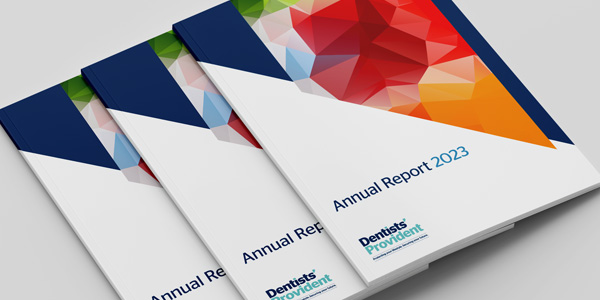
Ninety five per cent of our brain activity happens below the level of our consciousness, in our unconscious mind, and this part of our brain controls essential functions like breathing, allowing us to carry out basis life-supporting activities while simultaneously processing other information. That’s how we can, for example, drive a car and think about what to cook for dinner at the same time.
This ‘unconscious mind activity’ is also what influences and dictates many of our habits. While habits are a huge part of our daily lives, understanding how they become ingrained in your brain could help you keep the habits you like and drop the ones you don’t. This article will attempt to give you the ‘know how’… the rest, of course, is up to you…
Habitual behaviour
As much as forty per cent of our daily behaviour is habitual, and the New Year tends to be the time we try and break unwanted habits and form new ones. While it has been suggested that habits can be made or broken in just 21 days, it’s not always that simple and in reality can take anywhere between 15 and 254 days to form a new habit (or stop an old one). Given the right circumstances and determination, however, what may seem at the start like an uphill battle might just become a normal part of our everyday lives.
Breaking bad habits
In July 2018 the New Scientist reported on the latest in neuroscience and psychology by showing us how we can tweak our relationship with our unconscious mind. To do this you need to reprogramme your unconscious by ‘derailing’ the habit you want to break. You can do this by changing your environment such as giving up smoking on holiday rather than at home. Or if you have an unhealthy snack every time you walk into the kitchen then think about removing these snacks and replacing them with a fruit bowl located in a more accessible place. It might sound obvious, and it may take longer to change your behaviour than you want it to, but research shows us that with repetition we can, over time, break these bad habits.
Making it work in dentistry
Dentist Barry Oulton (who spoke at the Oral Health Conference in Telford in November on ‘Wow your patients with a completely comfortable injection technique…’) is well versed in discussing habits with his patients and how to make them more positive and productive with their oral hygiene routines. In an August 2018 article in Dentistry Dr Oulton focused on using triggers to achieve changes with patient behaviour, such as remembering to floss once a day by linking it with something else they did once a day like showering, rather than brushing twice a day.
New Years’ Resolutions
Here are a few tips to help you focus on ditching these bad habits and making your positive resolutions work until this time next year…or maybe for a whole lifetime;
Richard Wiseman, professor in Public Understanding of Psychology at Hertfordshire University, says you can boost your will power by completely focusing on one new resolution and breaking that down into smaller goals, rather than trying to achieve multiple resolutions at once. Take the time to plan your approach in advance and make sure you reward yourself when you reach key milestones.
There is a multitude of online advice and tools; NHS LiveWell has many areas of guidance on health and wellbeing and there is a huge variety of Apps to help you log and monitor your intake and output of food, drink and exercise for example. There are sports trackers that set goals and record your exercise and calories burnt, and health and diet monitoring devices that also provide an easy way to record what you eat and drink. Simply find out what suits your particular goal and what is most effective for you.
The Mental Health Foundation suggest we can be more successful in our goals by having a support network of friends and family, as they can help you to stay focused, and ensure you don’t obsess over small failures, but start afresh after each stumble. Also if you can make your resolution become part of your everyday routine, then after several weeks they are more likely to become a lasting habit.
Tomas Chamorro-Premuzic, a professor of business psychology at UCL, says we fail because we set ourselves goals that were simply not realistic. So it is very important to set specific, realistic and achievable goals, which are not trying to change our innate personalities and character traits.
Good luck with changing those habits that might drive you to distraction and improving your life with new, more positives ones.
References available on request.
This article is intended for general information only, it is not designed to provide financial, health or other advice, nor is it intended to make any recommendations regarding the suitability of any plans for any particular individual. Nothing in this article constitutes an invitation, inducement or offer to subscribe for membership or additional benefits of Dentists’ Provident.
No responsibility or liability is assumed by Dentists’ Provident or any copyright owner for any injury or damage to persons or property as a consequence of the reading, use or interpretation of its published content. Whilst every effort is made to ensure accuracy, Dentists’ Provident, the authors, Editors and copyright owners cannot be held responsible for published errors.
Dentists’ Provident exercises editorial control only over material published and/or produced by it. No responsibility or liability is assumed by Dentists’ Provident for any articles produced or reproduced in third party publications and/or websites.
The views or opinions expressed do not necessarily reflect views of Dentists’ Provident or copyright owners. Inclusion of any advertising material does not constitute a guarantee or endorsement of any products or services or the claims made by any manufacturer.
If you have any questions, please contact our member services consultants by emailing press@dentistsprovident.co.uk or calling 020 7400 5710.
If you have any questions, please contact our member services consultants by emailing
memberservices@dentistsprovident.co.uk or calling 020 7400 5710.

Our 2024 Annual General Meeting will be held at 91-94 Saffron Hill, London, EC1N 8QP on Friday 24th Ma…
Read more
The 2023 annual report from Dentists’ Provident, a leading income protection provider for dental profe…
Read more
Our next exhibition is the British Dental Conference & Dentistry Show in May, where we look forward to meeting anyone interested in becoming a member or members wanting to discuss their plans.